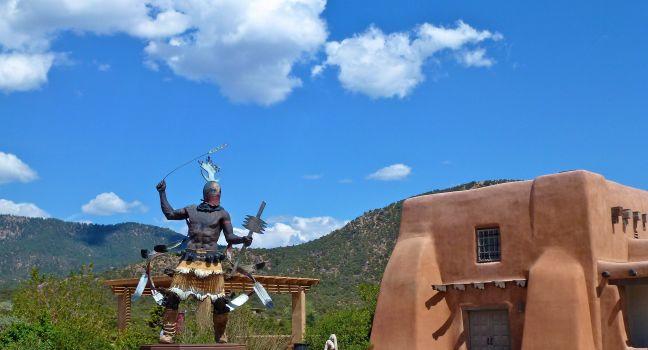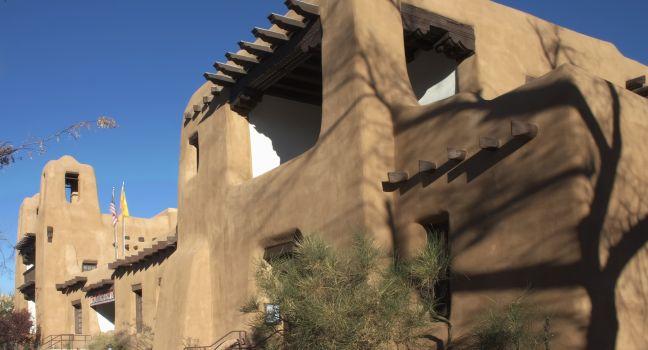Cathedral Basilica of St. Francis of Assisi
This iconic cathedral, a block east of the Plaza, is one of the rare significant departures from the city's nearly ubiquitous Pueblo architecture. Construction was begun in 1869 by Jean Baptiste Lamy, Santa Fe's first archbishop, who worked with French architects and Italian stonemasons. The Romanesque style was popular in Lamy's native home in southwest France. The cleric was sent by the Catholic Church to the Southwest to influence the religious practices of its native population and is buried in the crypt beneath the church's high altar. He was the inspiration behind Willa Cather's novel Death Comes for the Archbishop (1927). In 2005 Pope Benedict XVI declared St. Francis the "cradle of Catholicism" in the Southwestern United States, and upgraded the status of the building from mere cathedral to cathedral basilica—one of just 36 in the country.
A small adobe chapel on the northeast side of the cathedral, the remnant of an earlier church, embodies the Hispanic architectural influence absent from the cathedral itself. The chapel's Nuestra Señora de la Paz (Our Lady of Peace), popularly known as La Conquistadora, the oldest Madonna statue in the United States, accompanied Don Diego de Vargas on his reconquest of Santa Fe in 1692, a feat attributed to the statue's spiritual intervention. Each new season, the faithful adorn the statue with a new dress. Take a close look at the keystone in the main doorway arch: it has a Hebrew tetragrammaton on it. It's widely speculated that Bishop Lamy had this carved and placed to honor the Jewish merchants of Santa Fe who helped provide necessary funds for the construction of the church.






